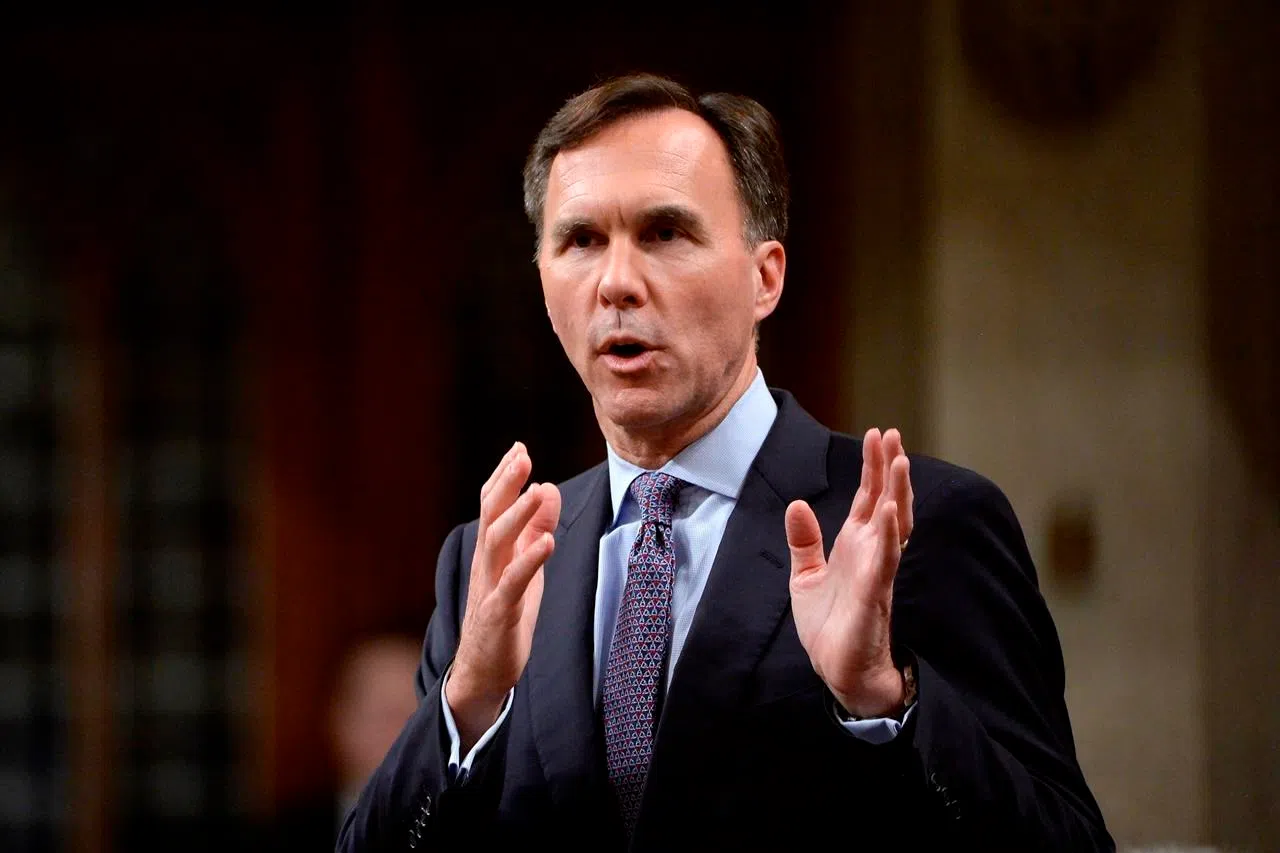
Morneau faces more questions despite promise to sell shares, use blind trust
OTTAWA — Cracks began to show in Bill Morneau’s cucumber-cool countenance Friday as the finance minister faced still more questions about the handling of his personal fortune, even after pledging to sell at least $21 million worth of stock in hopes of muting conflict-of-interest allegations.
More than once, Morneau struck a note of exasperation during a news conference in Waterloo, Ont., where he was promoting the Liberal government’s efforts to address concerns and complaints about a package of proposed small-business tax reforms.
Just the day before, the former businessman committed to sell about one million shares in Morneau Shepell, the family-founded human resources and pension management firm that he helped build over 25 years, and to put the rest of his substantial personal assets in a blind trust.
But if those steps — over and above what Canada’s ethics commissioner told him would be necessary, he reinterated — were meant to silence questions from journalists and opposition critics, Morneau was sorely mistaken.
